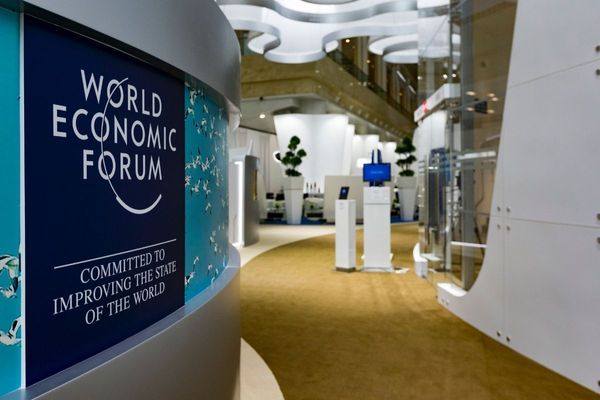Digital technologies can reduce greenhouse gas emissions by up to 20% by 2050 in the three highest-emitting sectors: energy, mobility and materials
As businesses and governments respond to global calls for action to tackle climate change, significant efforts must be put in place to achieve net zero.
These new estimates are the result of a collaboration between the World Economic Forum and Accenture. However, a large gap remains between commitments and action. Estimates of current commitments indicate a projected emissions reduction of merely 7.5% when a 55% reduction is needed. Closing this gap will require high-emitting sectors to rethink efficiency, circularity and sustainability.
The results were released during the WEF Annual Meeting 2022 - the focal point for leaders to accelerate the partnerships needed to tackle global challenges and shape a more sustainable and inclusive future. Convening under the theme, History at a Turning Point: Government Policies and Business Strategies, the Annual Meeting 2022 and its 450 sessions bring together global leaders from business, government and civil society.
Energy, materials and mobility constitute the highest emission sectors, contributing 43%, 26% and 24% respectively of total emissions in 2020. These industries can use four digital technologies to decarbonize their operations and value chains: foundational technologies such as big data analytics; decision-making technologies such as artificial intelligence/machine learning and digital twins; enabling technologies such as cloud, 5G, blockchain and augmented reality; and sensing and control technologies such as internet of things, drones and automation.
According to the estimates, digital solutions can reduce emissions by up to 8% in the energy sector by enhancing carbon-intensive processes, improving energy efficiency in buildings, and deploying and managing renewable energy.
In the materials sector, digital solutions can improve mining and upstream production and enhance efficiency and circularity of materials, reducing up to 7% of GHG emissions by 2050. The mobility sector can reduce emissions by up to 5% by supporting the transition from fossil fuel combustion to green molecules, improving supply chain efficiencies and optimizing travel routes.
"Digital technologies and business models are readily available levers for companies to accelerate their climate and energy transitions. Technology can bring transparency, efficiency and circularity to business processes and value chains. Shared learning and action by industry leaders and climate coalitions will be key to realizing the benefits of technology at scale while keeping its carbon footprint low,"
said Manju George, Head of Platform Strategy, Digital Economy, World Economic Forum.
The Forum is curating an inventory of lighthouse examples, companies that are leading the way in implementing digital technologies to reduce their carbon footprint and deliver economic growth to inspire more adoption and collaboration.
"The combination of digital and sustainability is already creating significant value across industries but many companies are still seeking the practical, strategic and impactful actions they must take now to realize the full impact of their ambitions and commitments,"
said Kathleen O'Reilly, Global Lead, Accenture Strategy.
"While every digital transformation will look different, the use of real-time data to enable sustainable decision-making, new-skilling opportunities for workforces to scale digital, and collaboration both within the organization and across the value chain will be core to the success of all."
In each sector, digital technologies must be deployed together with new climate technologies and business models to deliver net zero. In addition, efforts to reduce emissions from the digital technologies themselves must continue, keeping their net impact on the planet overwhelmingly positive.
News Source: Emirates News Agency









